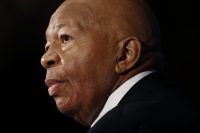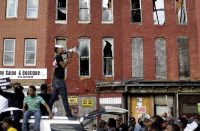Contributed by Rebecca Johnson
Barbershops are an established social hub for black men everywhere. Live Chair, an app that allows barbers to book and market their shops, equips barbers to screen their clients’ blood pressure and refer at-risk men to health professionals.
“Live Chair barbers are using their contact and influence to overcome healthcare inequities that have caused gaping health disparities for African American men. Equipped with a blood pressure monitor and driven by purpose, our barbers can now empower, encourage, and enable their clients to better manage their health conditions and live a healthier life,” their website says.
In June 2018, a study was done by the National Heart, Lung, and Blood Institute (NHLBI) where they paired black barbershops with pharmacists. Researchers enrolled 319 black men who had high blood pressure and regularly visited on of the participating barbershops. One group encouraged the men to meet with a pharmacist while the other group encouraged the men to make lifestyle changes.
“After six months, 63 percent of the men who worked with the pharmacists achieved a healthy blood pressure level, while only 12 percent of the men in the control group did so. The intervention group achieved an average blood-pressure level of less than 130/80 millimeters of mercury (mm Hg). In the control group, the average blood pressure fell to 145 mm Hg.”
Nile Style, a barbershop in Northeast Baltimore has trained their barbers to use blood pressure monitors and screen their customers for hypertension, as reported by WBAL. Their customers consist of mostly black men, who are more likely to develop hypertension than their white counterparts.
“Black men consist of 47% hypertension in this country and are 60% more likely to die of a stroke than their white peers. So, meeting them where they are here at the barbershop, where they come, so this event is so, so helpful,” said the shop’s owner, Shanile Shakoor.







